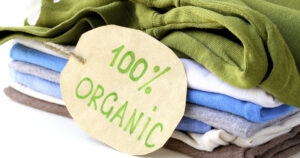The global sustainable apparel market is anticipated to be valued at US$ 11.2 million in 2023 and it is anticipated to grow at a CAGR of 9.3% to reach US$ 27.2 million by the end of 2033.
Sustainable apparel is manufactured utilizing textiles that are constructed, manufactured, and marketed in a conscious and reliable way that recognizes and accounts for their socioeconomic and environmental impacts. Further, consumer preference towards the adoption of eco-friendly products to supplement sustainable apparel sales.
Sustainable Apparel Market growth factors
The sustainable apparel market has seen significant growth in recent years due to several factors. First and foremost, there is a growing awareness and concern about the environmental and social impact of the fashion industry. Consumers are becoming more conscious of the negative effects of fast fashion on the environment and on workers in developing countries. As a result, there is a growing demand for sustainable and ethical fashion products, such as those made from organic or recycled materials, and produced under fair labor conditions.
 Another factor driving the growth of the sustainable apparel market is the increasing availability and affordability of sustainable fashion options. In the past, sustainable fashion was often associated with high prices and limited availability. However, as more companies have entered the market and invested in sustainable production methods, prices have become more competitive and sustainable options have become more widely available. Additionally, the rise of e-commerce has made it easier for consumers to access and purchase sustainable fashion products from anywhere in the world. As a result, the sustainable apparel market is expected to continue to grow in the coming years.
Another factor driving the growth of the sustainable apparel market is the increasing availability and affordability of sustainable fashion options. In the past, sustainable fashion was often associated with high prices and limited availability. However, as more companies have entered the market and invested in sustainable production methods, prices have become more competitive and sustainable options have become more widely available. Additionally, the rise of e-commerce has made it easier for consumers to access and purchase sustainable fashion products from anywhere in the world. As a result, the sustainable apparel market is expected to continue to grow in the coming years.
Why Organic Cotton Industry Increases the Demand for Sustainable Apparel?
The organic cotton industry has played a significant role in increasing the demand for sustainable apparel. Organic cotton is grown without the use of harmful pesticides and fertilizers, which can have negative environmental and health effects. Instead, organic cotton farming uses natural methods such as crop rotation and composting to maintain soil fertility and control pests. This results in a more sustainable and eco-friendly farming method, which has become increasingly important to consumers who are concerned about the impact of the fashion industry on the environment. As a result, organic cotton has become a popular material for sustainable fashion products, driving the growth of the sustainable apparel market.

In addition to its environmental benefits, organic cotton also has social benefits. Organic cotton farming often involves fair labor practices and supports small-scale farmers in developing countries. By purchasing products made from organic cotton, consumers are supporting sustainable and ethical farming practices, as well as supporting the livelihoods of small-scale farmers. This has helped to increase awareness and demand for sustainable apparel that is not only eco-friendly but also socially responsible. As a result, the organic cotton industry has been instrumental in driving the growth of the sustainable apparel market and promoting sustainable and ethical practices throughout the fashion industry.